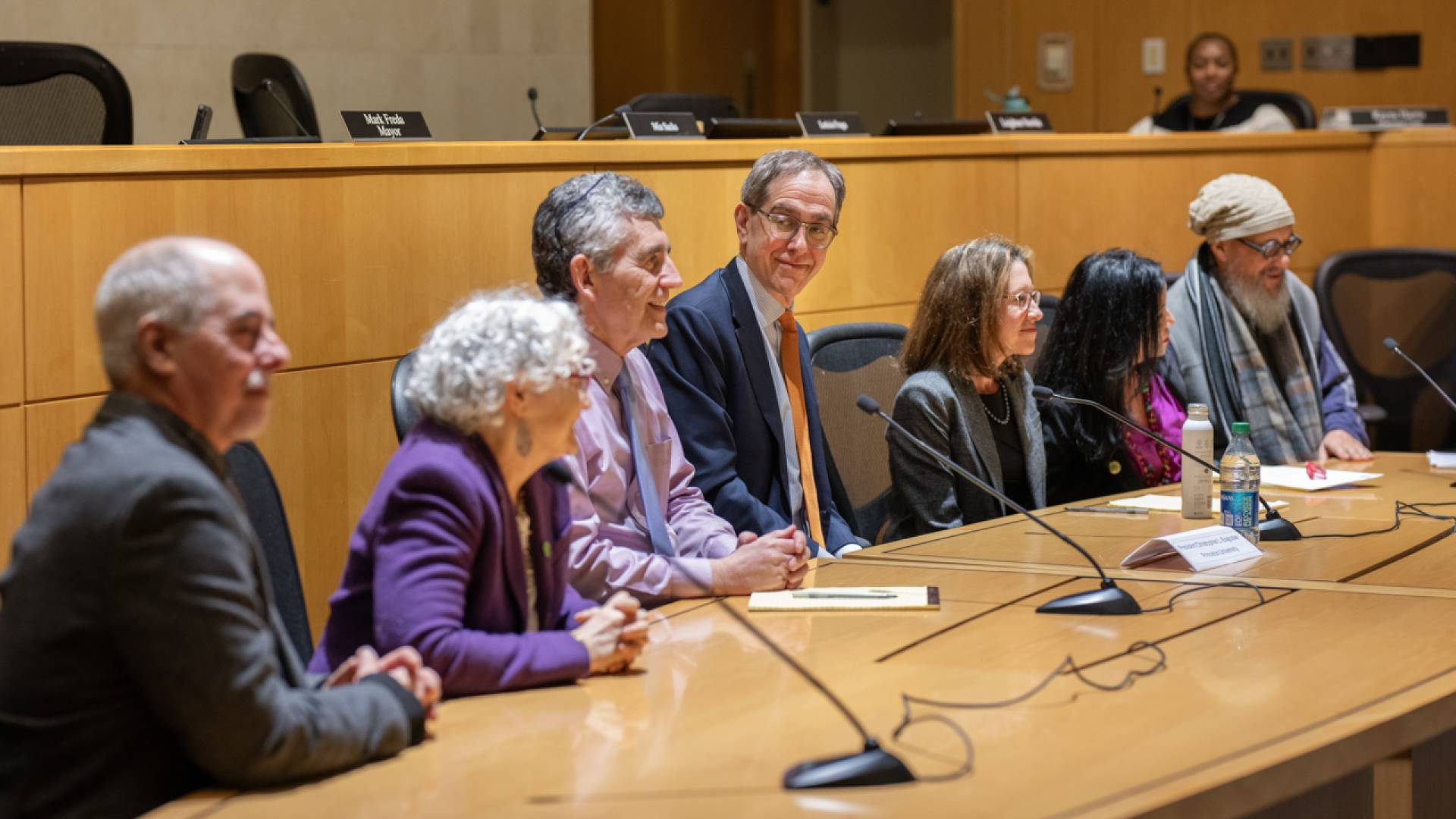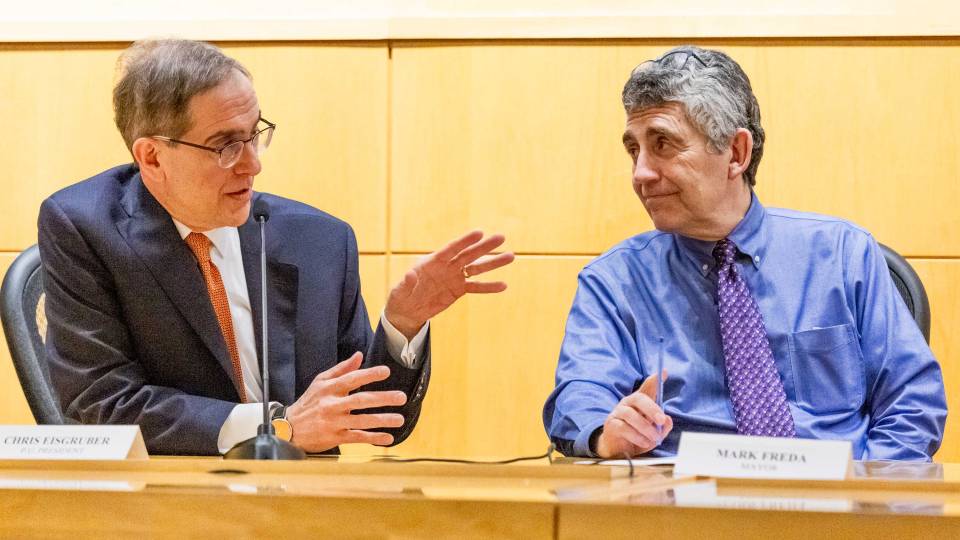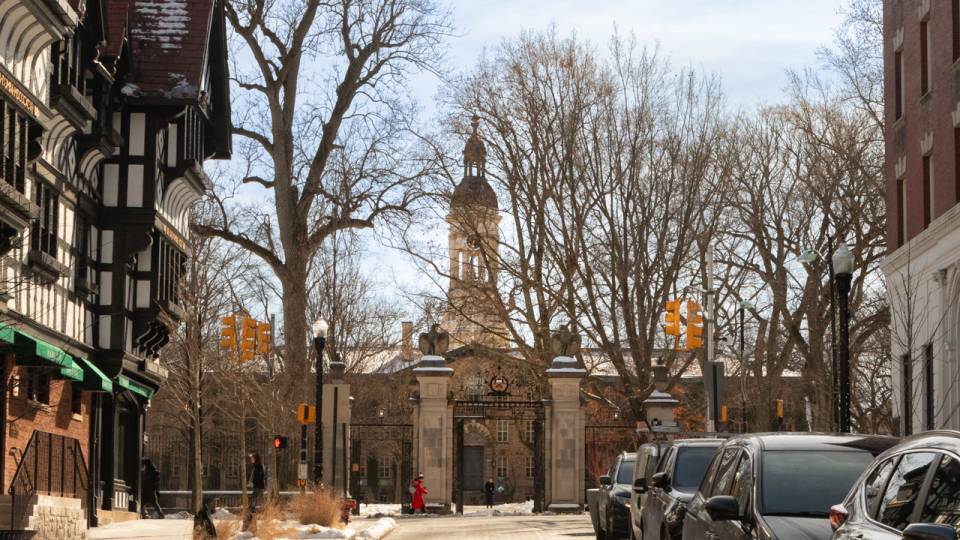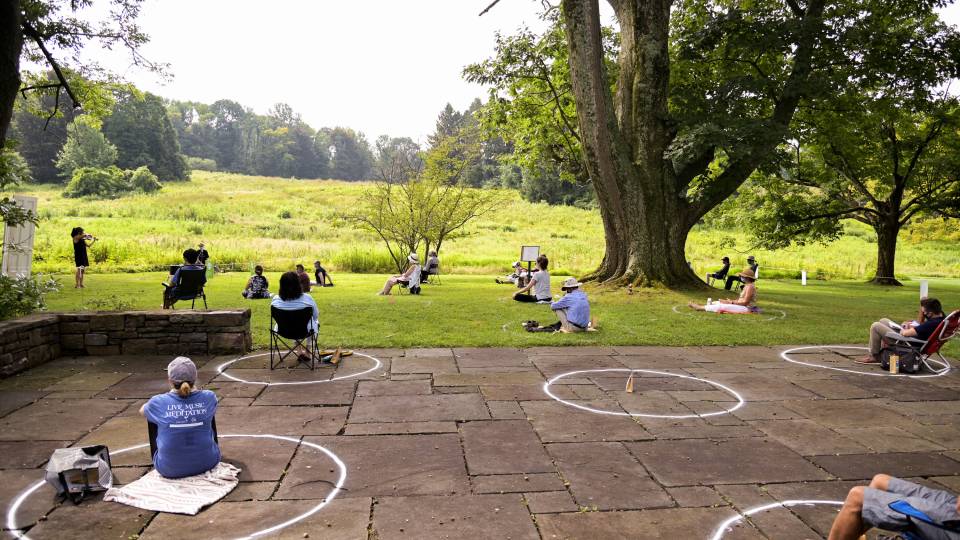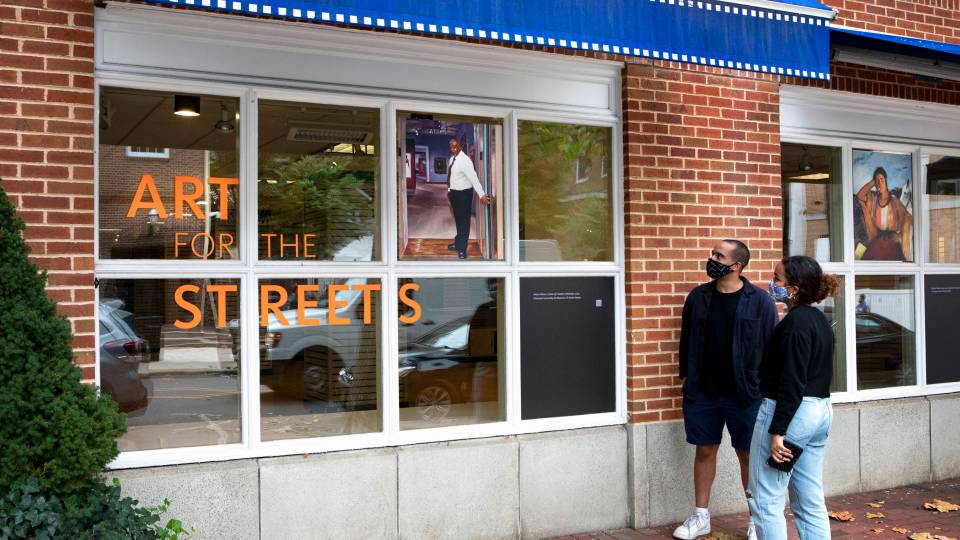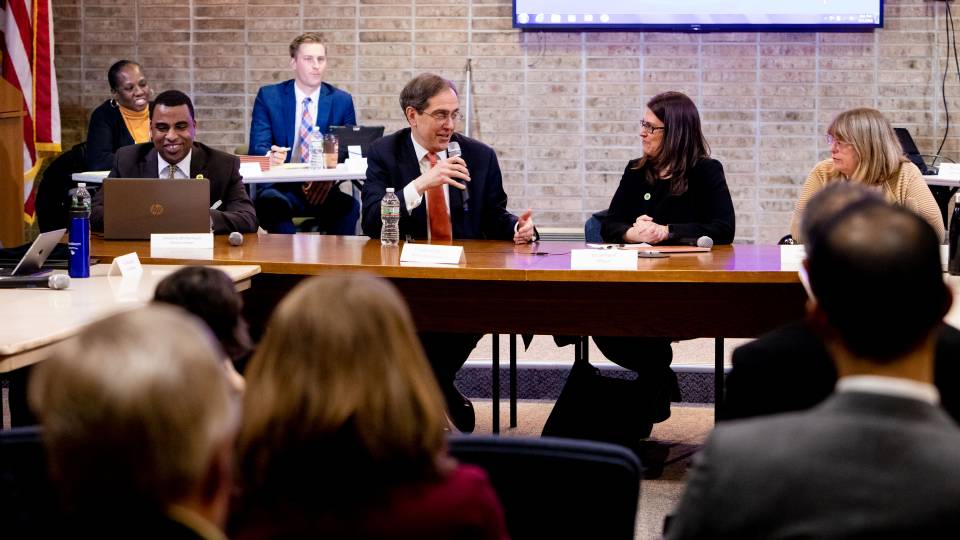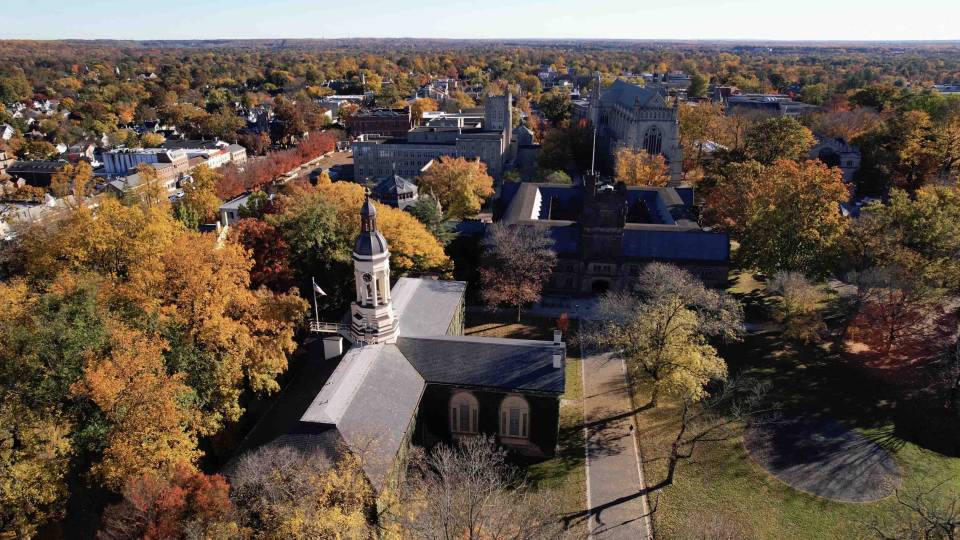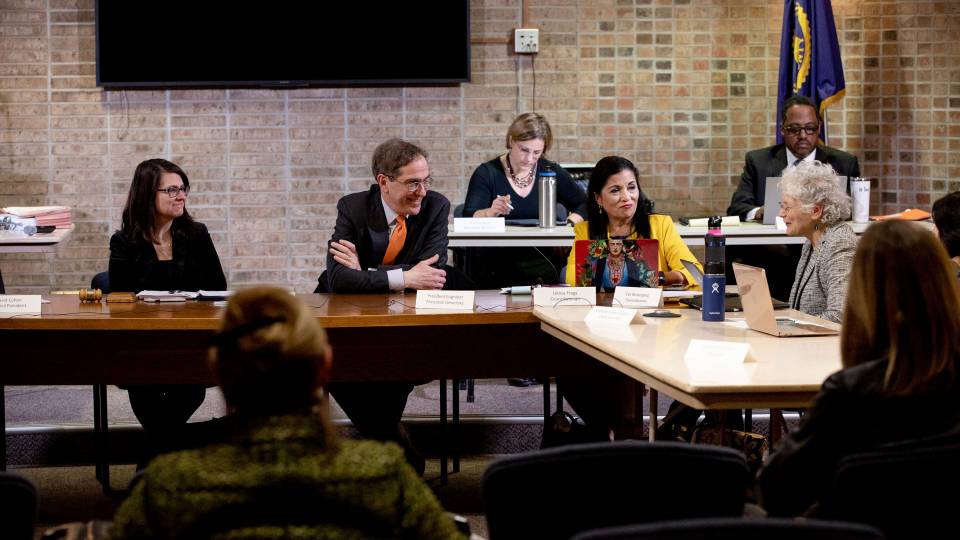University President Christopher L. Eisgruber (center) speaks with Princeton municipal council members (left to right) David Cohen, Eve Niedergang, Mayor Mark Freda, Mia Sacks, Leticia Fraga and Leighton Newlin.
President Christopher L. Eisgruber and Princeton municipal officials reaffirmed shared interests — from college access and socioeconomic diversity to sustainability and mass transit — during their annual meeting on Monday, Feb. 26.
“The town is such an important partner to us,” Eisgruber said during the meeting with Princeton Mayor Mark Freda and Princeton Council members at the Witherspoon Hall municipal building. “We appreciate the ability to identify areas of shared interest and concern.”
The evening was the 11th year of a town-gown tradition since Eisgruber became president, an annual meeting that both sides praised as valuable and productive.
“Thank you for being at the top, showing leadership and setting the tone for collaboration and positive change,” Councilmember Leighton Newlin told Eisgruber.
Last month, the University announced plans to contribute more than $50 million over five years to the municipality and local organizations as part of its ongoing voluntary contributions to the community. The framework outlines University contributions to the municipality totaling $39.5 million over five years, which includes $28.2 million in unrestricted cash contributions and $11.3 million dedicated to specific municipal projects and programs. In addition, the University expects to provide $10.8 million over five years to nonprofit organizations for programs that aid lower- and middle-income residents.
The University is also largest taxpayer in Princeton, with a total of $7.7 million paid to the municipality in property and sewer taxes in calendar year 2023.
“I truly believe we are stronger together,” Council President Mia Sacks said of the University and town’s relationship.
Sacks said the collaborative discussions that led to the $50 million contribution plan were extremely positive, and she thanked Hilary Parker, University vice president and secretary, and Kristin Appelget, assistant vice president for community and regional affairs, for their partnership.
Beyond the recent $50 million framework, Freda said the town appreciates the University’s support of many other organizations and projects.
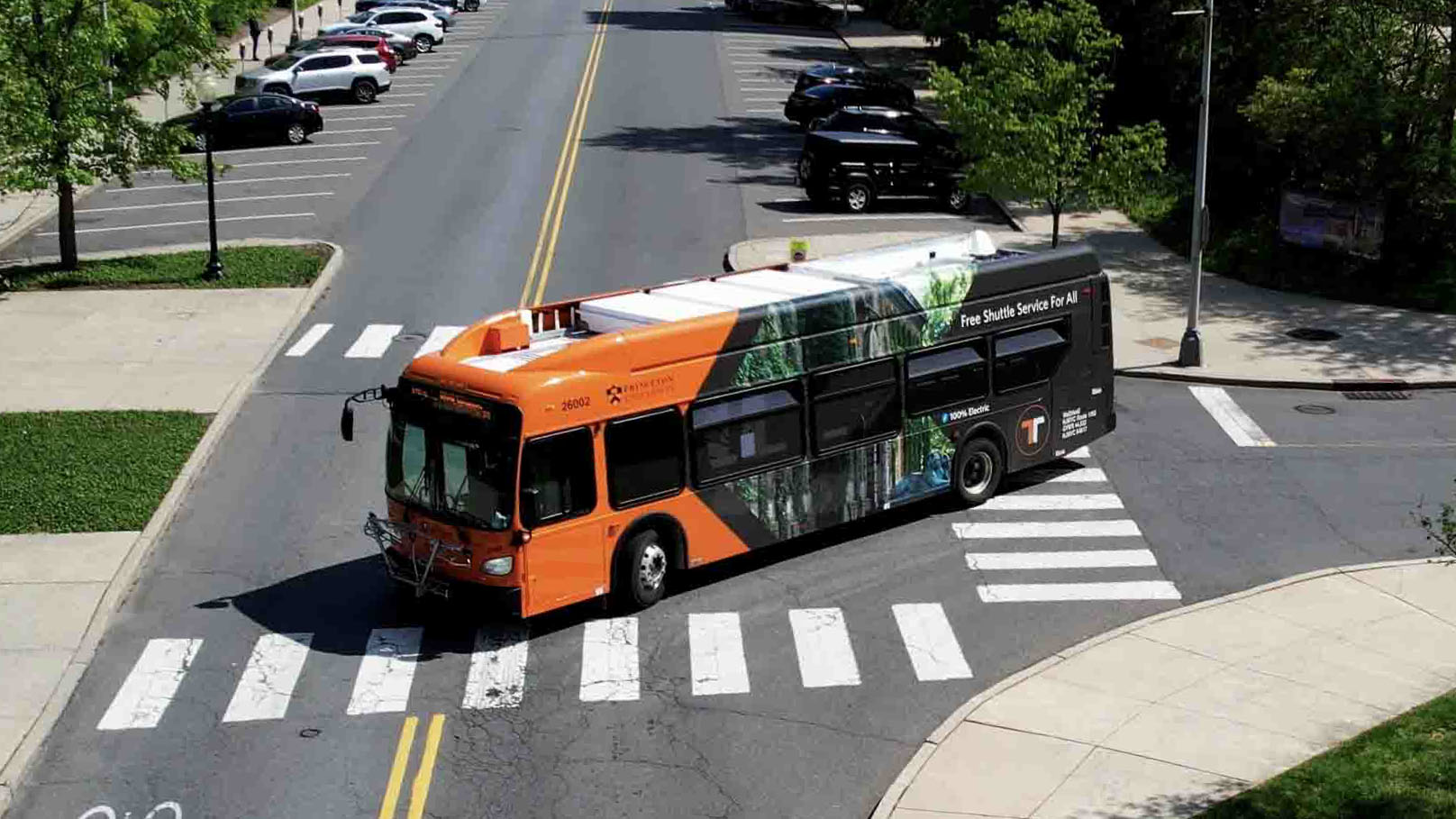
The University's electric-vehicle TigerTransit shuttle system is free and open to the public.
In advance of the council meeting, the University prepared a summary of various contributions and partnerships over the last year, including plans to contribute more than $14.6 million over five years to the Princeton Public Schools. The University also supports programs and resources that benefit the entire community, such as its electric-vehicle TigerTransit shuttle system that’s free and open to the public, and the “Pay with Points” program in which students spent nearly $400,000 at participating local businesses in 2023.
Eisgruber expressed his appreciation to the town for serving as a home for University students and a welcoming community for faculty and staff.
“Our students feel more and more a part of this community and this town,” Eisgruber said. “They want to cross Nassau Street, they want to be part of the life that happens here.”
Eisgruber said he also appreciates the town and the University’s shared values.
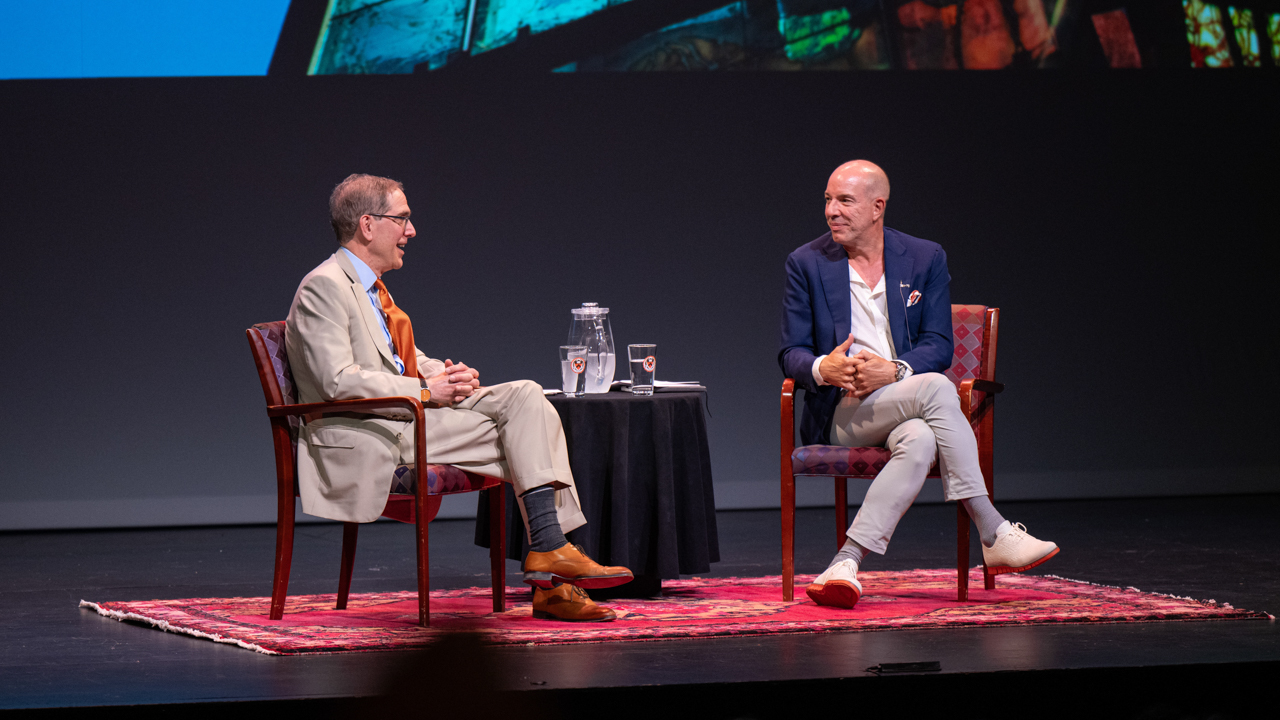
As part of Princeton’s Class of 2027 Orientation, President Christopher L. Eisgruber (left) and American Civil Liberties Union Executive Director Anthony Romero discussed the importance of free expression on campus. The topic of the University's commitment to excellence, free expression and inclusivity was also discussed at a meeting between Eisgruber and Princeton municipal leaders on Feb. 26, 2024.
“We believe that diversity and inclusivity are essential to excellence because in order to be generally excellent, and in order to produce teaching and research in the quality that we care about, you not only have to be attracting talent from every sector of society, you have to support that talent and enable it to flourish on our campus,” Eisgruber told councilmembers.
He referenced his recent State of the University letter and essay in The Atlantic, which acknowledged the “tumultuous” past year in higher education and reiterated the University’s commitments to excellence, inclusivity and free speech.
Councilmember Eve Niedergang thanked Eisgruber for his leadership and asked about new opportunities for collaboration. One idea, Eisgruber said, could be focusing on ways to keep young alumni in the community after graduation. He noted the University’s plans for a new artificial intelligence innovation hub in partnership with the state of New Jersey as a project that will attract “early career talent” to live and work the area.
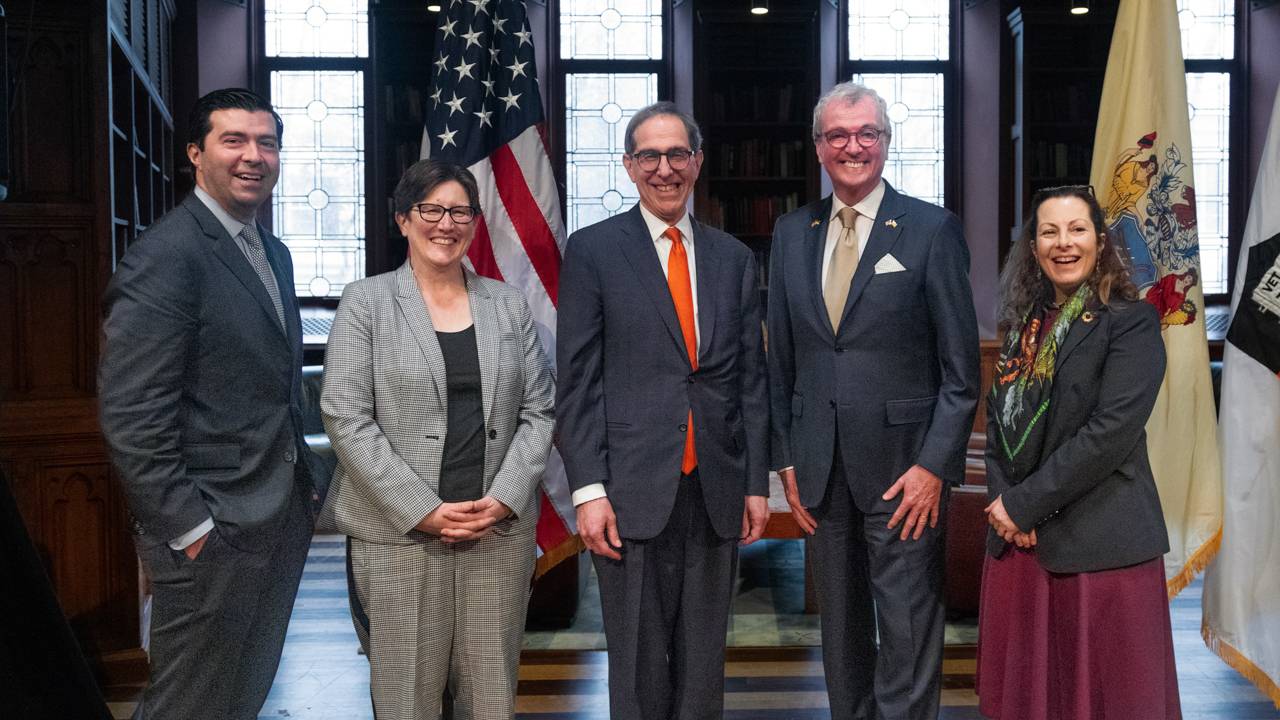
Eisgruber hopes plans for a new artificial intelligence hub in partnership with the state of New Jersey will attract "early career talent" to the Princeton area. Officials speaking at the AI hub announcement in December 2023 were (from left to right) New Jersey Economic Development Authority CEO Tim Sullivan, Princeton Provost Jennifer Rexford, Eisgruber, New Jersey Gov. Phil Murphy, and Beth Noveck, Chief Innovation Officer for the state.
Also on the Princeton Council’s mind was the municipality’s efforts to support greater socioeconomic diversity in town, with Councilmember David Cohen identifying middle-income housing as a priority and Newlin outlining his vision for a possible Princeton Housing Authority (PHA) project on Clay Street. Newlin added his appreciation for the University’s increased involvement with PHA.
Councilmember Leticia Fraga discussed the topic of well-being and mental health, noting a “crisis nationwide.” She said local officials are working on ways to support greater access to mental health care, and also expressed her hope for creating a community center in town.
“Well-being is a matter of profound concern for the University as well,” Eisgruber said. “I’m glad the town and council are focusing on this.”
“It’s important to foster connections for a lot of different reasons,” Eisgruber added. “We want to look for ways to partner around community projects that are really open to the entire community and matter to all, and work with you to determine which are the highest priorities within that group.” He said the University will continue to support local projects and events of mutual interest, such as the upcoming Princeton PorchFest community festival on Saturday, April 27.
As the discussion closed, Eisgruber expressed gratitude for the continued collaborations between the University and municipality that make Princeton a vibrant place to live and work.
“It’s wonderful that you can walk out” on Nassau Street, he said, “and both on the town side and on the University side feel this tremendous buzz of activity where people are coming together with one another.”
